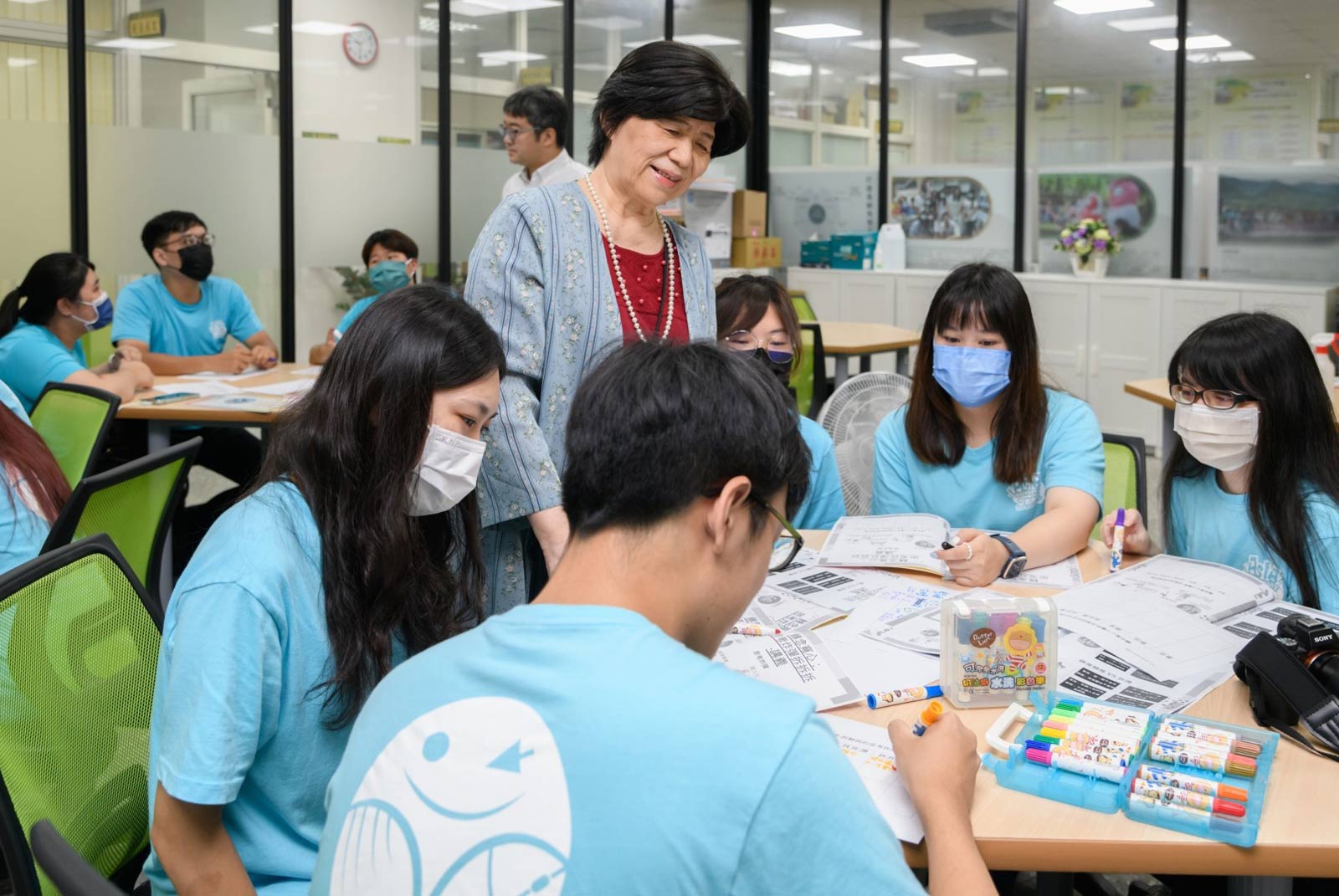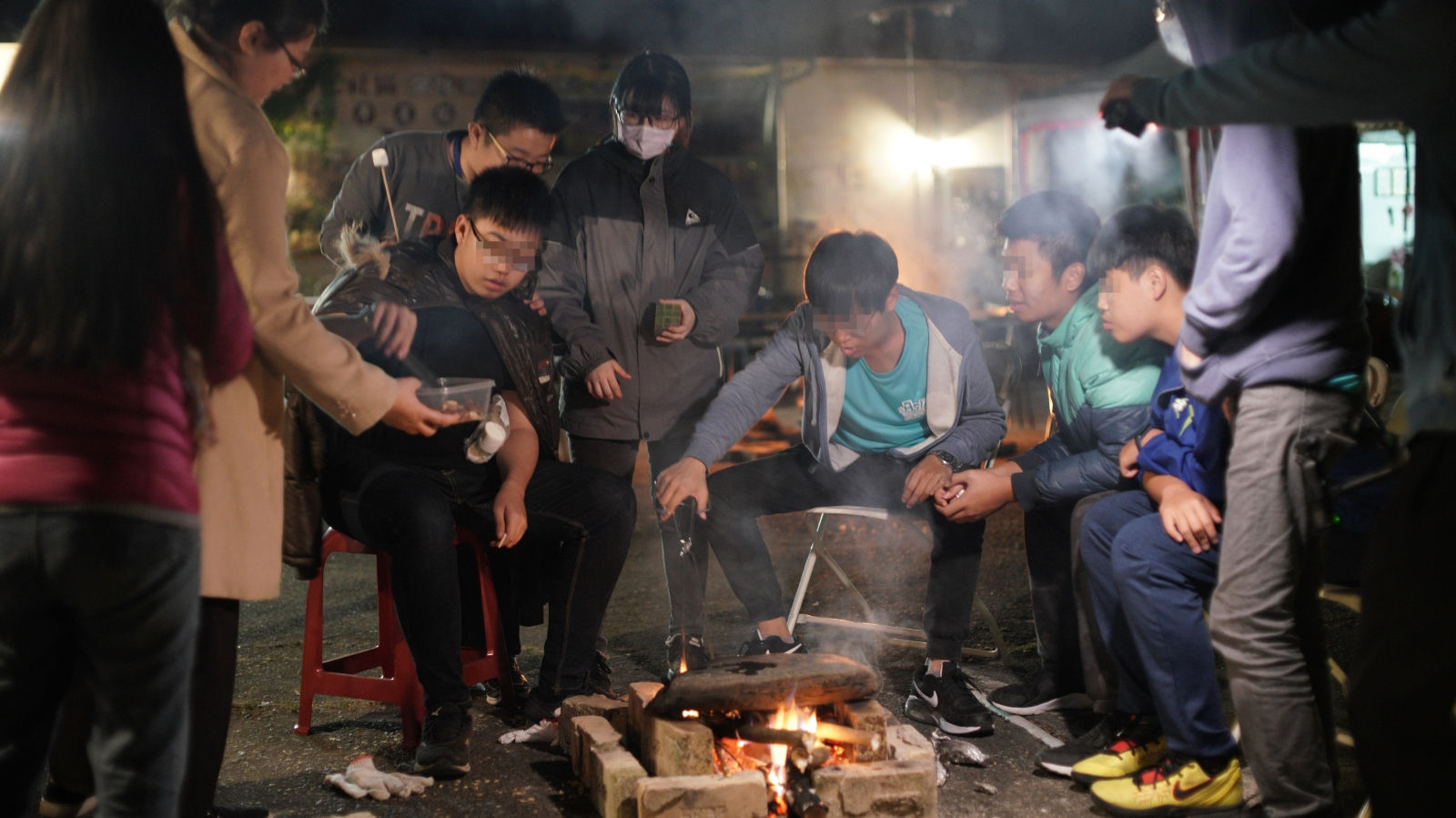How do ‘digital detox camps’ in Taiwan wean kids from the Internet?

Source:Pei-Yin Hsieh
When your child is addicted to the Internet, going cold turkey is not going to solve the problem. One digital detox camp in Taiwan has proven that it takes fun and engagement in the real world, reinforced by constructive communication, to help children and teenagers break the unhealthy habit.
Views
How do ‘digital detox camps’ in Taiwan wean kids from the Internet?
By Matthew Hsiaoweb only
Vocational high school graduate Cheng-en (not his real name) used to be a heavy user of the mobile MOBA-game Arena of Valor. He spent nearly all his time playing the game during online classes. Sometimes he slept just two hours a day for as long as an entire month.
confiscated and locked away in a safe by his parents. He set up a surveillance camera to film his parents as they opened the safe, thus obtaining the combination to “liberate” his phone.
Cheng-en recalls the toll the addictive habit took on his health. During the worst times, “My bed, my pillow, and the floor were covered with hair,” he says. Although he suffered from extreme exhaustion and hair shedding, he still could not control his urge to play. He went as far as threatening his father, who tried to prevent him from playing, with a knife, and eventually left home.
80 percent of mobile game-addicted youth regain normal use habits
Meanwhile, Cheng-en has managed to untangle himself from his toxic relationship with mobile gaming with the help of digital detox camps, in which he participated for the first time in early 2020. The parent-child “Off-Internet Therapeutic Residential Camps” are run by the joint Center for Prevention and Treatment of Internet Addiction of Taichung-based China Medical University and Asia University.
The 15 camps that have been held to date were all completely booked. Eighty percent of participating parents believe that their Internet-addicted children have returned to a normal, healthy use of digital devices, and 85 percent feel that their parent-child relationship has improved. What is behind this success rate?
It is 8:30 a.m. as a group of students of elementary to senior high school age and their parents arrive at the Teaching Resources and Faculty Development Center of Asia University. They quietly put their mobile phones in a bag, seal and sign it as they report for the digital detox camp. They will get their phones back only at the end of the camp on the following day.
All of the participants are youngsters who are addicted to the Internet. Some participate voluntarily because they are aware of their addiction, whereas others were tricked into joining by their parents.
Mobile games become less attractive as camp participants find joy interacting with others
Asia University Vice President Ko Huei-chen, who also heads the Center for Prevention and Treatment of Internet Addiction, observes that parents typically confiscate their children’s mobile phones or disconnect the Internet to rein in excessive mobile gaming. This approach is bound to fail, she says. “How do you make up for the gap that is created by directly cutting off the Internet?” Ko asks.
She explains that for adolescents, digital devices are like companions. If they are deprived of this important element in their lives, they can easily get on the wrong track or become emotionally unstable. Some neglect schoolwork while others engage in self-harm to manage their feelings, or even attempt suicide.
She emphasizes that merely having the motivation to deal with Internet addiction is not enough. It takes specialist support to map out a strategy for kicking the habit. Ko compares the process to dieting.: A person who tries to lose weight merely by starving themselves will fail because they will quickly regain the lost pounds as soon as they begin to eat normally.
Ko organized the first digital detox camp for adolescents in 2019, drawing on her own research, clinical observations, and Internet addiction prevention experience in South Korea. The camps aim to help participants find a sense of success and joy in real life. After a camp is over, center staff follow up on participants' further progress.
Over two days, the children and teens participate in typical camp activities such as ice-breaking games, basketball competitions, and small group performances which help them develop a sense of achievement and belonging.
Classes are held where they learn how to prevent becoming engrossed in online activities as well as how to reflect on their own digital habits.
 Group activity. (Source: Asia University, Taiwan)
Group activity. (Source: Asia University, Taiwan)
They also learn to question their perceptions and detect their own blind spots. When adolescents are cold-shouldered in interactions with their peers, they often think that something is wrong with themselves while their counterpart might be in the middle of something or just in a bad mood. They tend to make hasty assumptions.
Cheng-en feels that the classes are helpful for young people. He used to get dejected when criticized, and sought to escape these negative feelings by retreating into his gaming world. Now he understands that these critics “only saw a small part of me” and is therefore able to take a different perspective.
Cheng-en, who now serves as team leader in camp contests, also discovered that striving for high scores together with teammates in the real world creates a feeling of success comparable to the euphoria experienced in an online game, but on top of that one also finds real friends.
Cheng-en, who has a day job, likes to play ball with his friends in his spare time. He now only uses his smartphone at bedtime to watch YouTube videos or browse Instagram. “Normally I am already very happy when hanging out with my friends, so I feel playing games is nothing special.”
Sandwich communication technique helps daughter substantially cut Internet time
Parents need to be actively involved in the process to support their children as they try to kick the habit for good.
Ko explains that children often get pulled into the Internet because parents do not realize the youngsters’ needs and do not know how to communicate appropriately with them.
“In the classes we list many incorrect communication methods, and I realized that I am using them all,” admits one parent named Jason. In the past he adopted the authoritarian approach that his father had used during Jason’s own upbringing.
His daughter, a junior high school student, was addicted to video games, playing from the time she returned from school at 6 p.m. till midnight every day. Jason used to confiscate her mobile phone and disconnect the Internet. He also used various software and telecom services to restrict Internet usage, but this only led to even greater conflict within the family.
He was advised to try the digital detox camp when he took his daughter to a hospital to seek help.
At the camp, Jason learned to be empathetic. He realized that teenagers withdraw into the world of mobile games when their needs are not being satisfied in the real world. As he had been constantly lecturing and criticizing his daughter, she lacked affirmation and a sense of belonging.
He tried to use the sandwich technique that is taught at the camp to improve parent-child communication. Conversations start with an affirming and encouraging dialogue, after which some suggestions are “sandwiched” in before concluding with further affirmation and encouragement.
Now, when Jason notices his daughter spending too much time on mobile games, he controls himself instead of reacting harshly and does not immediately criticize her. If he wants her to do some household chores, Jason waits until the game comes to the end of a phase and does not demand that she immediately carry out whatever she has been asked to do.
Meanwhile, the situation has markedly improved. His daughter is now ready to discuss the time she spends playing on the smartphone with Jason. She has cut down on gaming time from at least six hours per day to around one and a half hours per day, even during the summer break.
More than 200 people have participated in the camps, some of whom have rejoined the program as organizers, assisting with new cases.
Professor Lin Yu-hsuan at the Department of Psychology of National Taiwan University has done research on digital addiction for many years. He confirms that improving adolescents’ sense of achievement in the real world and asking parents to be involved in the detox process are good approaches.
Lin says in up to 70 percent of the Internet addiction cases that he has seen in his consultations, only the parents came to see him. Therefore, it can already be considered a considerable improvement if parents and children attend a camp together.
But he also cautions that camps are not a panacea, since addiction cannot be healed with a one-off effort. All addiction problems require long-term follow-up and psychological support.
Have you read?
- Solution to Taiwan’s aging population: Reimagining family
- Friendly Washing Society cleans schools helps homeless regain esteem
Translated by Susanne Ganz
Edited by TC Lin
Uploaded by Ian Huang






